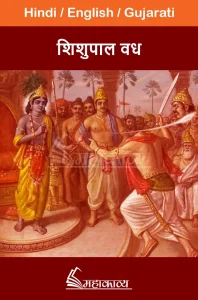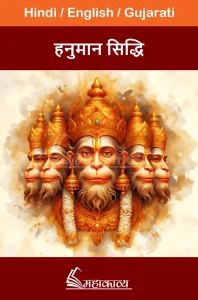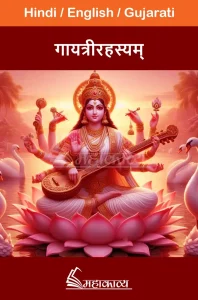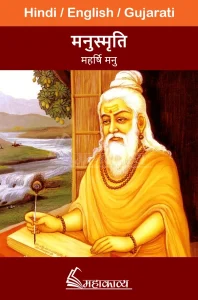Read Mahabharata in English
Mahabharata (Mahabharata in English) is a great book of Aryan culture and Indian Sanatan Dharma and is a great storehouse of priceless gems. Lord Ved Vyasa himself says that in this Mahabharata I have explained the secrets and detail of Vedas, the complete essence of Upanishads, history, the nature and nature of Puranas, the laws of Chaturvarnya, the meaning of Puranas, the magnitude of planet-constellation-star, etc. justice, education, medicine, charity, Pashupat ( The glory of Antaryami), pilgrimages, virtuous countries, rivers, mountains, forests, and seas have also been described. Therefore Mahabharata is epic, esoteric knowledge-science, scripture, political philosophy, Karma-yoga philosophy, devotional science, spiritual science, Aryajatika history, and a comprehensive collection of scriptures. The most important thing is that there is a unique, omniscient, omnipotent, Sarvalokamaheshwar, Paramyogeshwar, unconcerned quality-possessed creation-state, cataclysmic, bizarre lilavihari, Bhakta-bhaktiman, devotee-everything, Nikhilarasamritsindhu, infinite loving love, Premaghan Vigraha, Sachchidanandghan, Lord Krishna’s Guna Deva, Vasu’s It’s a sweet song. Its glory is immense. The Upanishad sages have also accepted the paramount importance of Mahabharata by describing the history of Purana as the fifth Veda.
Table of Contents
ToggleWriting of Mahabharata :-
According to the legend of Mahabharata, (Mahabharata in English) Maharishi Ved Vyas composed the Mahabharata after being absorbed in austerity in a holy cave in the Himalayas, remembering all the events of Mahabharata from the beginning to the end. Ved Vyas composed the Mahabharata in his mind, but a serious problem arose that how to convey the knowledge of this epic to the common people was very difficult due to the complex composition and huge length of this poem. One should write the same way as Vyas continues to speak without making any mistakes. Therefore Maharishi Ved Vyas went to Brahmaji and on the behest of Brahmaji, Vyasji reached Ganesha. Lord Ganesha agreed to write at the behest of Ved Vyas, but Ganesha put a condition in front of Ved Vyas that once he started writing poetry, then he will not stop writing anywhere in the middle until the poem is over. Ved Vyas knew that this condition was very difficult, so Ved Vyas also put a condition that before writing a verse, one has to understand the meaning of the verse. Ganesha also accepted this condition. In this way, Ved Vyas continued to speak and Ganesha continued to write. In between, Ved Vyas used to say difficult verses, and then Ganesha used to think about the meaning of that difficult Shloka, during this time Ved Vyas used to compose new Shlokas. Thus the Mahabharata was written in a span of 3 years. Ved Vyas wrote the first book of one lakh verses including anecdotes, the first Proto Bharat. After this, excluding anecdotes wrote the Bharat Samhita, which had 24,000 verses. After the creation of the Mahabharata, Ved Vyas ji first got his son Shukdev to study this book, later on, other disciples Vaishampayan, Pail, Jaimini, and Asit-Deval all studied it. Vaishampayana gave this discourse to humans. Mahabharat poetry by Vaishampayan Ji has narrated too many sages and sages including cotton in the Yagya ceremony of Janamejaya.
introduction:-
Jai, Bharat, and Mahabharata are the epics composed by the famous Maharishi Vedavyas by all three names. In today’s era, we know by the name of Mahabharata. The first book was composed by Ved Vyas named “Bharat”, which had 100,000 verses. In the book named Bharat, Ved Vyas has written many other religious anecdotes including the anecdotes of many great sages, Chandravanshi, and Suryavanshi kings along with the characters of the Indians. After this Maharishi Ved Vyas created the poem ‘Bharat’ by focusing only on the Indians. Due to the victory of religion over unrighteousness in both these poems, it came to be known as ‘Jai Samhita’. According to a story of Mahabharata, the gods kept all four Vedas in one scale and Bharat Granth was placed in the other scale, India proved to be much heavier than all the Vedas. Therefore, in view of the greatness of Bharat Granth, this book was named Mahabharata by the gods and sages. For this reason even today we know this epic poem by the name of ‘Mahabharata’. The Mahabharata is also considered to be the fifth Veda, and the Bhagavad Gita, the holy book of Hinduism, is derived from the Mahabharata itself. The entire Mahabharata numbers 110,000 verses, and is divided into 18 Parva and 100 subparva. The following are the 18 Parva of Mahabharata.
The magnitude and greatness of the epic can be estimated from a verse mentioned in the first Parva of the Mahabharata, which means –
Whatever is in Mahabharata, (Mahabharata in English) you will definitely find it anywhere in the world, what is not here, you will not find it anywhere in the world.
Read here in one click ~ Mahabharata in Hindi
18 Parva of Mahabharata :-
1. Adiparva,
2. Sabha Parv,
3. Aryankaparva,
4. Virat Parv,
5. Udyog Parv,
6. Bhishma Parva,
7. Dronaparva,
8. Karnaparva,
9. Surgery,
10. Souptik Parv,
11. Stree Parv,
12. Shantiparva,
13. Disciplinary Parv,
14. Ashwamedhikaparva,
15. Ashramvasika Parv,
16. Mausul Parv,
17. Mahaprasthanika Parva and
18. Ascension Festival.
The first verse of the Mahabharata begins the epic poem with this.
नारायणं नमस्कृत्य नरं चैव नरोत्तमम्।
देवीं सरस्वतीं चैव ततो जयमुदीरयेत्॥
Narayanam namaskritya naram chaiva narottamam.
Devi Saraswatim Chaiva Tato Jayamudirayet
The great war for land arose between the 100 Kaurava brothers of the Mahabharata and the five Pandava brothers. The dates of this great war were fixed by the scholars which are given below:-
1. According to Indian mathematician and astronomer Varahamihira, the war of Mahabharata took place in 2449 BC.
2. According to Indian mathematician and astronomer Aryabhata, the war of Mahabharata took place on 18 February 3102 BC.
3. If seen in the Puranas, the war of Mahabharata took place in 1900 BC. If seen from Chandragupta Maurya in the genealogy given in the Puranas, then the date of 1900 BC is found.
4. According to some Indian scholars, based on the calculations of planets and constellations, the war of Mahabharata started in 3067 BC and on 13 November 3143 BC.
Read This Also
Shrimad Bhagwat Gita
Valmiki Ramayana
Vidur Niti
Chanakya Niti
Please wait while flipbook is loading. For more related info, FAQs and issues please refer to DearFlip WordPress Flipbook Plugin Help documentation.






 Download the Mahakavya App
Download the Mahakavya App